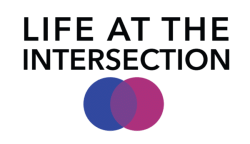HOW TO TAKE STOCK OF THE GIFTS YOU BRING TO ACTIVISM
Take Stock of Your Unique Skills and Abilities
Here you will take stock of where you are a go-to person. What is your superpower, your fountain of knowledge? Take a motivation assessment scale so you can match your personal motivation to your activism.
When you have found the cause closest to your heart, move to Step 2 on the Activism Path: take stock of the gifts you bring to activism. You will understand how to best use your talents for your cause by listing your skills and abilities.
If you are an experienced activist finding less impact than you wish or feeling burnt out, listing your skills and abilities can change your activism work in small ways or perhaps take it in an entirely new direction.
Why does using your unique gifts matter? Effective activists match their skills and abilities to the cause closest to their heart and experience higher engagement, satisfaction, and success.
So, how do you uncover your gifts? Begin with a thorough skills and knowledge inventory. Then, examine your personal motivations and how you can apply them to your activism.
Want an easier way to follow the Activism Path?
While Life At The Intersection offers a great starting point for becoming an activist, using The Happy Activist: Journey the 5-Step Activism Path to Focus Your Action and Change the World makes finding your perfect activism opportunity much easier. With in-depth material, hands-on exercises, and a companion workbook, you'll find the tools you need.
Get Your Copy Of The Happy Activist
Your Skill Inventory
Seeing how your skills apply might be challenging if you’re new to activism. Consider if you’ve performed tasks that can translate to activism, even if they seem unrelated. Don’t discount the value of what you already know. Spoiler alert: Activists use many nontraditional skills, including painting, kayaking, and cooking. Don’t be afraid to think outside the box—activism needs accountants, artists, tech experts, teachers, and more.
To create your skill inventory, gather information that documents your skills. This could include your résumé, performance appraisals, or even feedback from colleagues and friends. These resources can remind you of the skills you’ve honed over time.
To find your best skills, ask yourself:
- When I think about my daily life, what skills do I use regularly? Sometimes, our skills are disguised as everyday habits. Are you a great listener? This is essential for building relationships and understanding others’ perspectives.
- What am I the go-to person for? Ask friends or colleagues what they see as your greatest strengths. Sometimes, others can see our gifts more clearly than we can.
- Maybe you get the call when someone has a tricky problem to solve. Your ability to think outside the box can help many causes.
Activist Example
Nina found the cause closest to her heart—preventing water pollution and runoff in her city.
She analyzes her skills:
The skills I use regularly are organizing events and creating brochures. I enjoy using my design to communicate with others. I am the go-to person for flyers for my kids’ school. Many people call me to get help with graphic design.
Nina realizes her design skills are valued (and she enjoys the work.) She uses her talent to create visually compelling materials for a local environmental campaign to change zoning requirements to prevent runoff into the waterways.
Your Knowledge List
Next, take stock of what you know. Are you a fountain of activism knowledge? Most people aren’t, and that is fine. You don’t need activism expertise to start; you can always learn as you go. However, understanding your current knowledge will help you see what you bring to the activism table.
Where are you a fountain of knowledge? Inventory where you have understanding or expertise, even if it is unrelated to activism.
- Where you’re the “go-to person” for vital information?
- Reflect on the questions people often ask you. What topics do they assume you know well?
- List areas where you’ve accumulated knowledge through education, work, or life experiences.
- Consider the types of publications you read, the media you consume, and the groups you engage with. This can provide insight into your areas of knowledge.
Cultural Competence
Cultural competence is essential to your success as an activist. Take the time to develop it alongside your other gifts.
This means understanding how to connect with people from diverse backgrounds. Reflect on your cultural biases, assumptions, and privilege, and seek to broaden your understanding of other cultures. By doing so, you’ll make your message more inclusive and impactful.
Consider your background and how it shapes your attitudes and behaviors. Understand others’ experiences when working together, and avoid imposing your own experiences on others. Recognize where you hold privilege and how it affects your work, and find areas where you can grow. A great place to start working on cultural competence is the BuzzFeed quiz How Privileged Are You?
Activist Example
Renata works as a software developer and is the go-to person in her friend group for anything tech-related. The cause closest to her heart is women’s health. She is clear about her unique knowledge but she takes time to reflect on her cultural competence.
After I took the How Privileged Are You? quiz, I realized the many areas where I hold privilege. As a white, educated, straight person in the United States I see where that has opened doors for me. On the other hand, I have experienced obstacles being a woman and I believe that is why I chose my cause. Getting better at cultural competence will make me a better activist.
When a women’s health group needed help with its website, Renata revamped it so they gained more visibility, organic visits, and donations.
Posts About Inventorying Your Knowledge
Activist Skills and Abilities
Tools like the Activist Skills and Experiences Questionnaire by Randy Schutt, available in The 5-Step Activism Path Workbook or at The Vernal Project, can help you assess your skills, abilities, and knowledge. This questionnaire is helpful for both new and experienced activists because completing it will:
- Remind you of the skills and knowledge you’ve gained throughout your life,
- help you understand how these skills and knowledge can translate into activism, and
- prepare you to discuss your gifts with others.
Your Motivation

Try this simple personal motivation assessment scale.
Personal motivation falls into four categories:
Translating Values into Positive Change: On the path to activism, you become clear about your values and passions for making change. The opportunity to translate those values and passions into activism work will motivate you.
Getting Satisfaction from the Work Itself: Feeling satisfaction from the work itself is a powerful motivator. It is lovely to just enjoy doing work. If you are motivated by the work, you will work harder to support your cause.
Enjoying Working with Others: We have a built-in need to socialize. Activism with friends or family can be motivating, even if you are working on their cause rather than yours.
Feeling Capable and Learning: Feeling capable motivates you. And if you achieve your goals for activism, you will experience better self-esteem.
Rank order these items, with 1 being your highest motivator and 4 being your lowest motivator.
_____ Translating values into positive change
_____ Satisfaction from the activism work itself
_____ Enjoyment from working with others
_____ Feeling capable and learning
It is wonderful if you find all four motivating. But build the most motivating one into your activism work.
Your Motivation
When Pamela evaluates her personal motivations, she is not surprised that her top motivator is translating her values into positive change. Her childhood was full of community and faith-based service with her family. As an adult, she has focused more on the cause dearest to her, which is disability activism. As she works to help those with disabilities, she feels she is truly living her values.
Posts About Motivation
Everyone Can be Activist
In this article you learned how to take stock of where you are a go-to person, your superpower, and your fountain of knowledge. You completed a motivation assessment scale.
Every person brings gifts to the activism table. Your unique combination of skills and knowledge, your superpower, will make you a confident, impactful advocate.
Get ready to change the world in a way only you can.
Activist Profiles

I spent months researching my book, The Happy Activist: Journey the 5-Step Activism Path to Focus Your Passion and Change the World. My favorite part was reading the stories of activists. Some are icons, but all are ordinary people who use their strengths in creative ways to make the change they want to see in the world. Want to get inspired in your activism? Browse their stories to help you take stock of your gifts
Go to Step 3: How to Find the Best Activism Method
Follow the 5-Step Activism Path
More Resources To Help You Take Stock Of Your Gifts
Read
- What Color is Your Parachute? by Richard Bolles This book contains a great exercise designed to help you identify the skills you enjoy using.
- Richard Bolles New York Times Obituary The author of What Color is Your Parachute? died at age 90 in 2017. What a fascinating life.
- The Third Reconstruction: How a Moral Movement is Overcoming the Politics of Division and Fear by Reverend Dr. WIlliam J. Barber II and Jonathan Wilson-Hartgrove
- Peggy McIntosh created the items for the Privilege Inventory that travels the web.
Browse
- Building the World We Dream About A Unitarian Universalist program that seeks to interrupt the workings of racism.
- It’s Pronounced Metrosexual Good information about privilege
Use
- Activism Skills and Experiences Questionnaire by Randy Schutt
- Check your Privilege From Buzzfeed.
- The Clifton’s StrengthsFinder Used by millions of people, the StrengthsFinder is a tool for self-awareness to capitalize on talents and apply them to challenges.
- Compare Countries – from Sociologist Geert Hofstede’s Cultural Competency Research
- Anti-Defamation League Personal Self-Assessment of Anti-Bias Behavior













